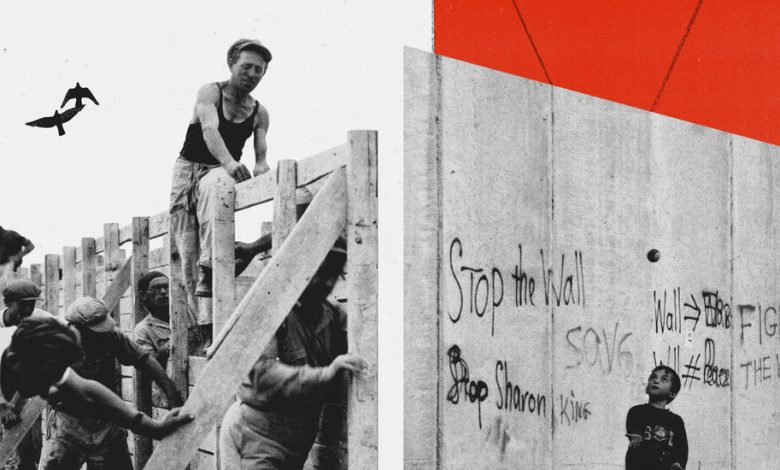Seeking Answers on Israel and Palestine

More from our inbox:
- The U.S. and Israel
- United (Briefly) by the Eclipse
- End-of-Life Planning
- The Church of Trump
- The Peace Sign, Progressive as Ever

Credit…Chantal Jahchan
To the Editor:
Re “The Two-State Solution Is a Fantasy,” by Tareq Baconi (Opinion guest essay, April 7):
Coursing through Mr. Baconi’s essay about the impossibility of a two-state solution is the notion that Jews have no legitimate presence in the Middle East to begin with, and that their presence there represents only the last gasp of the dying British colonial empire.
This argument turns history on its head. Jews and Judaism are of course indigenous to the region (when we end the Passover Seder in a few weeks, we will recite, as Jews have for millenniums, “next year in Jerusalem”) and the partition approved in 1947 was an attempt to provide for the legitimate claims of two peoples to a land to which they had each been long attached. The Zionist leaders of 1947 accepted this partition. Tragically, the Arabs of the region rejected it.
The war that Hamas began on Oct. 7 was not in pursuit of a future state in which Jews and Arabs would coexist. It was a violent expression of the idea that Mr. Baconi expresses in more polite but nonetheless clear terms, that the presence of Jews in their ancestral and historical homeland is fundamentally illegitimate.
Neil Schluger
Bronx
To the Editor:
Tareq Baconi argues against a two-state solution, considering it a ploy for continued Israeli domination. Yet he fails to articulate an alternative amenable to both Israelis and Palestinians.
Rather, he alludes to a situation in which one merely replaces Israeli domination with Arab domination. How will that end the bloodshed? How would the Israelis ever agree without being killed or expelled?
Each side must compromise; each side will be disappointed. But the only way to avoid another Oct. 7 or another nakba (Palestinian catastrophe), isn’t a forced marriage in which one side dominates the other, but a structured divorce in which each side has its property and rights recognized by the other.




